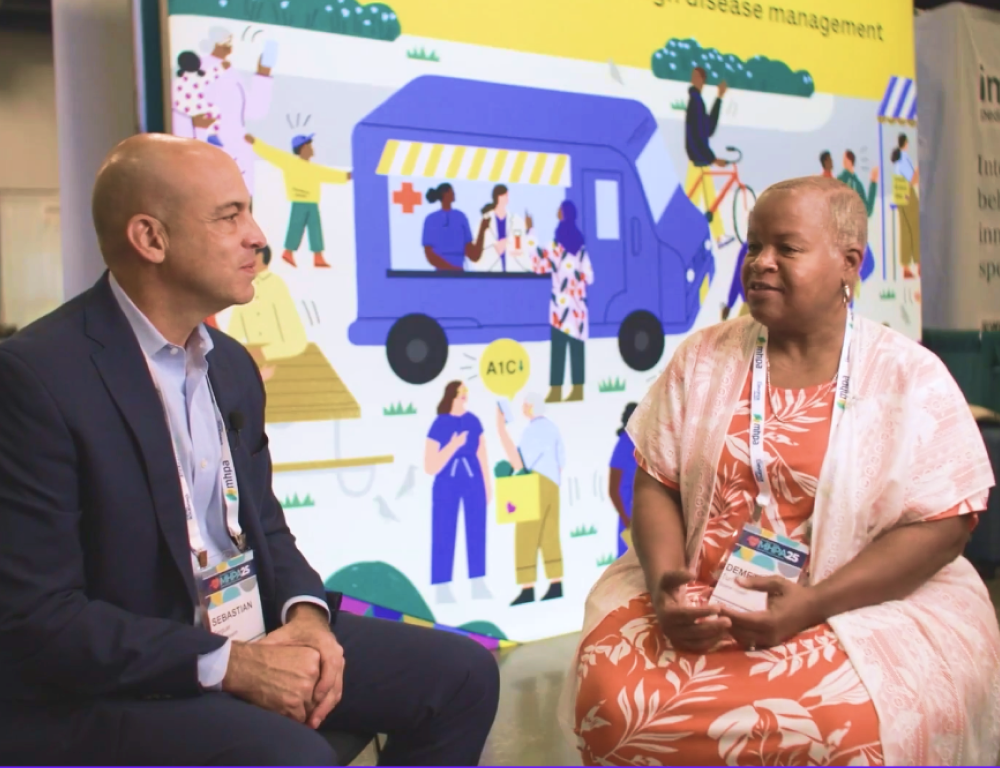Novel Approaches to Health Equity: a Recap of the HealthTech4Medicaid Panel Featuring our CEO

Our CEO, Sebastian Seiguer, was invited to participate in a panel at HealthTech4Medicaid’s annual Future of Medicaid Innovation Forum during JP Morgan Healthcare Week.
The panel, Deconstructing Healthcare Using Determinants of Health, brought together a diverse group of founders using novel approaches to solve one of healthcare’s most pressing issues – health inequity.
Gil Addo, Co-Founder and CEO of RubiconMD, moderated the panel. In addition, Ben Collier, Co-Founder and Co-CEO of The Farmlink Project, and Kimberly Seals Allers, founder of the Irth App, joined Seiguer as panelists.
The conversation spanned topics ranging from food waste to disparities in maternal care for black and brown women, to a lack of support and access to medications in Medicaid populations. Below are three key takeaways from the panel:
Food Insecurity and Food Waste Are A Barrier To Better Health
Ben Collier stated, “Food waste is a persistent issue. Over 10% of [the United States] faces food insecurity…and over 100 billion pounds of food are wasted annually.”
Good nutrition is an essential building block for good health and can help lessen or prevent chronic health conditions. By connecting the dots between food wastage at farms and food banks in need of fresh produce, The Farmlink Project is helping to deliver healthy, fresh food options to families in need.
There is a Need to Ensure Underserved Communities Have Access to Their Medications and Know How to Adhere to Them Properly
Sebastian Seiguer noted that patients have less time with providers today than 50 years ago. Seiguer went on to say, “Many of the SDOH problems, especially in underserved communities, compound themselves. Every condition has its own challenges. We have to address every dose, every patient, no exception… Medications are complicated. For example, using an inhaler can be difficult, but the good news is it is a solvable problem. It requires time and it requires support.”
Scene Health’s technology and care team enables us to scale person-to-person connections that support health every day and provide more time with patients between provider visits. Using the example of a pediatric asthma patient, Seiguer noted that a correction in inhaler technique could help avoid a hospital visit for asthma exacerbation down the road.
Gathering Reviews from Black and Brown Women can Begin to Address Disparities in Maternal Mortality
Kimberly Seals Allers created the Irth App to reduce disparities in maternal care for Black and brown women. She powerfully recalled her own experience by saying, “When I had my first child, I walked out of hospital saying, ‘What just happened to me?’ I felt disrespected, ignored, and I had a terrible experience.” Checking in on women in communities of color and evaluating hospitals and healthcare providers with the Irth App empowers women of color to make their own choices in healthcare and can help reduce the disparities in maternal mortality for Black and brown women.
Wrapping it Up
Addressing health inequity requires more than a one-size-fits-all approach. Many determinants of health contribute to disparities in care – too many to discuss during one panel. However, the panelists at HealthTech4Medicaid’s Forum are each contributing novel approaches that will provide more equitable care for everyone.




.png)

